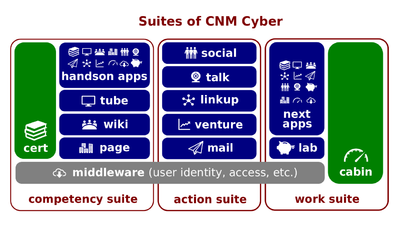What Cyber Can't
What Cyber Can't (hereinafter, the Lectio) is the lesson part of the CNM Cyber Essentials lesson that introduces its participants to CNM Cyber. This lesson belongs to the Introduction to CNM Cyber session of the CNM Cyber Orientation.
Content
The predecessor lectio is What CNM Cyber Can.
Key terms
Script
- With regard to your employment and employability, CNM Cyber doesn't deliver what cannot be delivered.
- Factors that limit one's options to accomplish his or her goal are known as constraints. The triple constraint suggests that the trio of project scope, time, and cost shall be balanced. Simply put, one needs to choose two out of three: complete, fast, and cheap.
- Since all the services of CNM Cyber are free of charge, CNM Cyber's triple constraint advocates that those endeavors that have significant scopes, take significant times.
- Let's take some middle school graduate as an example. His or her journey to a meaningful job would include a couple of years to get a high-school credential, 4 years to obtain an undergraduate degree, about a year of an entry-level job search, two years as a professional novice, and about one year of a professional job landing.
- Of course, these numbers vary depending on many factors including one's network, credentials, and, simply, luck. Nevertheless, 7 years sounds like an optimistic estimate. With CNM Cyber, this endeavor may be shorten down to less than 4 years.
- Absolutely, the case described above is extreme. But, overall, you may expect that CNM Cyber can help shorten your career endeavor's schedule. Not mentioning that you would save 100% of the budget to pay tuition and other career expenses.
- At the same time, joining the CNM Cyber may not be feasible for quick projects. Historically, CNM Cyber is best for those endeavors that take six months or longer.
CNM Cyber Suites is the successor lectio.
Questions
Lectio quiz
- The answer is recorded for the lectio completion purpose:
- Which statement below is correct:
- All of the other substantive answers are correct.
- None of the other answers is correct.
- Which statement below is correct:
